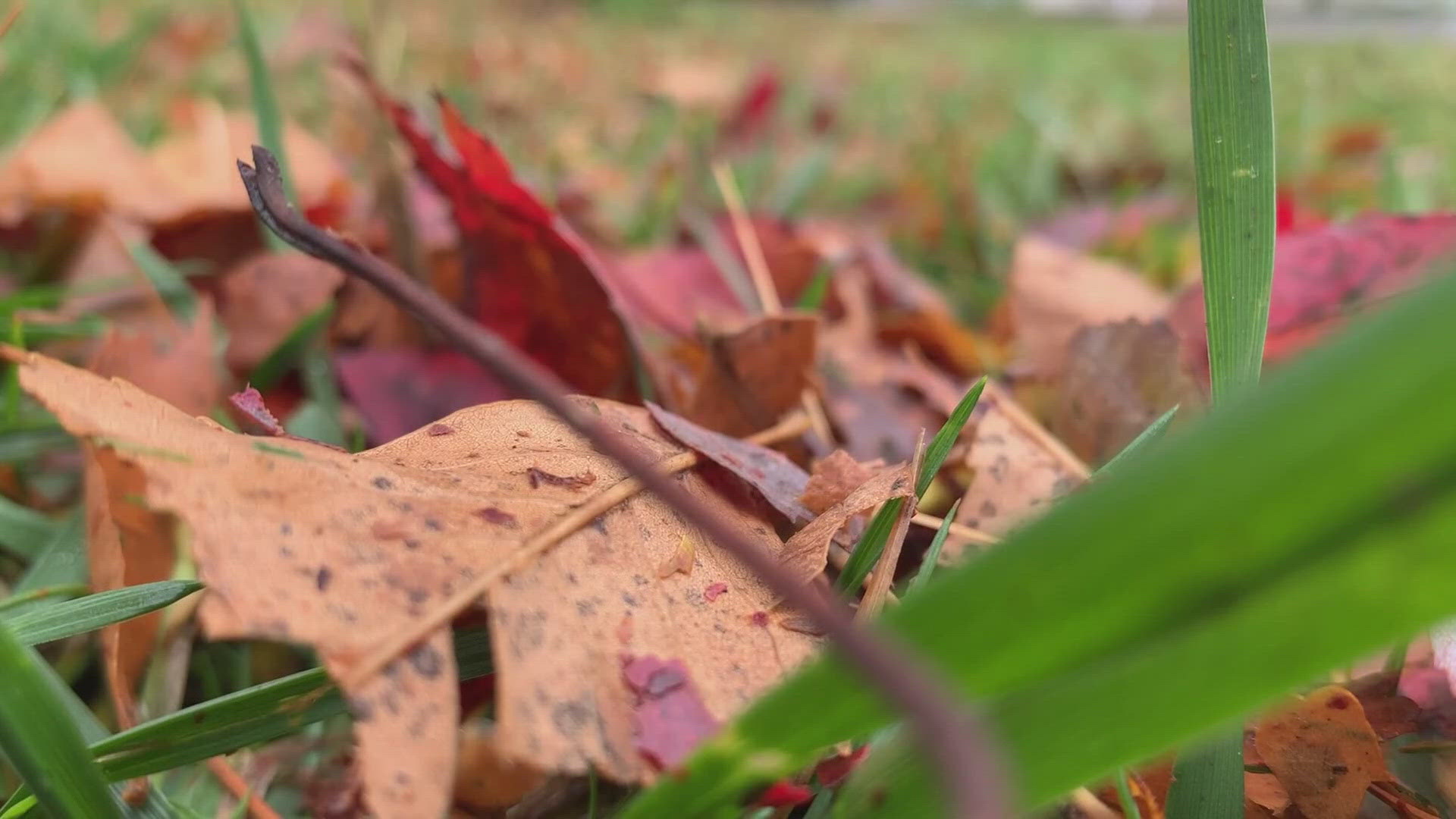PORTLAND, Maine — Many people look forward to autumn, a season known for its cooler temperatures and vibrant foliage. And as the leaves fall, many homeowners face the daunting task of raking and bagging them. But, do you really need to?
We had a viewer write in asking this question, so I wanted to answer it. And I come with good news!
The U.S. Environmental Protection Agency reports that yard trimmings, including leaves and grass, contribute to roughly 12 percent of solid waste. In landfills, the lack of oxygen slows down the decomposition of leaves, leading to the production of methane gas as they break down.
But here's the good news—leaves can actually benefit your yard and garden.
As leaves decompose in your garden or yard, they create a natural fertilizer and act as mulch, helping to suppress weeds. A study from Michigan State University found that using chopped leaves on Kentucky bluegrass reduced dandelions by nearly 80 percent.
The National Wildlife Federation also encourages homeowners to leave their leaves, as they contribute to a thriving ecosystem beneath them. The fallen foliage additionally nourishes the microorganisms in the ground, promoting healthier soil and better plant growth. Essentially, you're returning valuable organic material back into the earth.
To speed up the decomposition process, consider chopping the leaves with your lawnmower or adding them to your compost.
So, this fall, think twice before reaching for that rake, because you might just be helping your garden thrive. And if you already have, or have had your children do it, it's still good exercise. Plus, it builds character!

